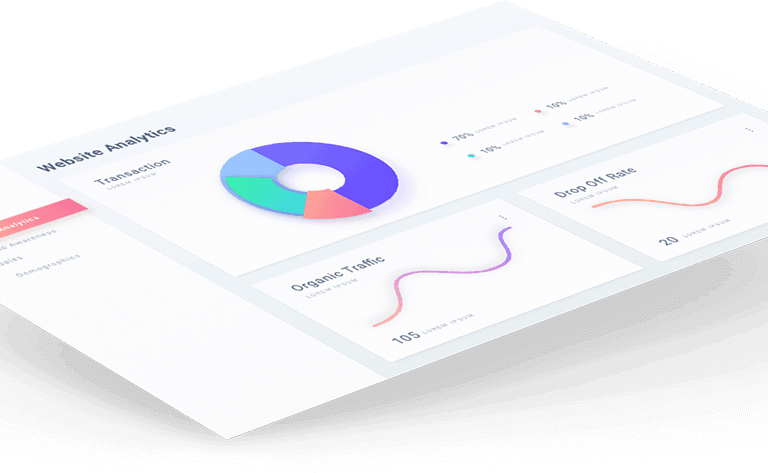In the ever-evolving landscape of fleet management, staying ahead of the curve is crucial for businesses seeking to optimize operations, enhance safety, and embrace technological advancements. As we step into 2024, a new era unfolds, marked by transformative trends that promise to redefine the way fleets are managed in Australia.
In this comprehensive article, we’ll explore the top emerging fleet management trends that businesses should be prepared to embrace for a successful and efficient journey into 2024.
Electrification Takes Center Stage
Accelerated Adoption of Electric Vehicles (EVs)
The push towards sustainability and environmental responsibility continues to shape fleet management strategies. In 2024, there is a noticeable surge in the adoption of electric vehicles within fleets. With advancements in EV technology and a growing charging infrastructure, businesses are transitioning to electric fleets to reduce carbon footprints and align with eco-conscious practices.
Integration of Renewable Energy Sources
Beyond electric vehicles, fleets are exploring the integration of renewable energy sources to power their operations. Solar-powered charging stations and innovative energy solutions are becoming integral components of fleet depots, allowing businesses to harness clean energy and further reduce their reliance on traditional power sources.
Strategic Planning for EV Infrastructure
Fleet managers are proactively planning for the development of charging infrastructure. This includes identifying optimal locations for charging stations, exploring partnerships with charging networks, and investing in scalable solutions that accommodate the growing number of electric vehicles within the fleet.
Advanced Telematics and Connectivity
Integration of 5G Technology
The rollout of 5G technology is revolutionizing connectivity within fleets. In 2024, businesses are leveraging the higher data speeds and lower latency of 5G to enhance real-time communication, telematics, and data analytics. This transition enables quicker decision-making, improved vehicle tracking, and a more seamless integration of fleet management systems.
IoT-Enabled Fleet Management Solutions
The Internet of Things (IoT) is playing a pivotal role in fleet management, offering a network of interconnected devices that communicate and share data. IoT-enabled sensors in vehicles provide valuable insights into fuel consumption, vehicle health, and driver behavior. This data is then analyzed to optimize routes, improve maintenance scheduling, and enhance overall operational efficiency.
Cloud-Based Fleet Management Platforms
Cloud-based fleet management platforms are gaining prominence for their flexibility and accessibility. Fleet managers can access real-time data, analytics, and reports from anywhere, fostering a more agile and responsive approach to managing fleets. Cloud solutions also facilitate seamless integration with other business systems, promoting a holistic and interconnected approach to fleet management.
Artificial Intelligence (AI) for Predictive Analysis
Predictive Maintenance Through AI
“AI algorithms are increasingly being employed to predict when maintenance is required, helping businesses shift from reactive to proactive maintenance strategies. By analyzing data from vehicles and equipment, AI identifies patterns and potential issues, allowing fleet managers to schedule maintenance before a breakdown occurs, minimizing downtime and reducing overall maintenance costs.”
AI-Based Route Optimization
AI-powered route optimization is becoming more sophisticated, considering factors beyond traffic conditions. These systems analyze historical data, weather patterns, and even driver preferences to recommend the most efficient routes. This not only saves time and fuel but also enhances driver satisfaction by providing routes that align with their preferences.
Enhanced Driver Safety with AI
AI is playing a crucial role in improving driver safety. Advanced driver-assistance systems (ADAS) use AI algorithms to analyze real-time data from cameras and sensors to detect potential hazards. In 2024, fleets are investing in AI-driven safety solutions, including collision avoidance systems and fatigue monitoring, to prioritize the well-being of drivers.
Data Security and Privacy Concerns
Heightened Focus on Data Security
As fleet management becomes more data-driven, the importance of data security and privacy is at the forefront. Fleet managers are investing in robust cybersecurity measures to protect sensitive information, including vehicle locations, routes, and driver behavior. Encryption, secure cloud storage, and regular cybersecurity audits are becoming standard practices.
Compliance with Data Privacy Regulations
With the introduction of stricter data privacy regulations, fleet managers are ensuring compliance with laws such as the General Data Protection Regulation (GDPR). This includes obtaining explicit consent for data collection, providing transparency about data usage, and implementing processes to promptly address data breaches.
Employee Training on Data Security
Recognizing that employees play a crucial role in data security, fleet managers are prioritizing training programs to educate staff on best practices for data handling. This includes awareness of phishing threats, secure password practices, and adherence to company policies regarding data access and sharing.
Autonomous Vehicle Integration
Pilots and Testing Programs
While fully autonomous fleets might still be on the horizon, 2024 sees an increase in the integration of autonomous vehicle technology in fleets. Businesses are engaging in pilots and testing programs to evaluate the feasibility and benefits of autonomous vehicles in specific use cases, such as long-haul transportation or controlled environments.
Collaboration with Technology Providers
Fleet managers are collaborating with technology providers specializing in autonomous vehicle solutions. This includes partnerships with companies developing autonomous software, sensor technology, and vehicle-to-everything (V2X) communication systems. These collaborations aim to stay ahead in the rapidly advancing field of autonomous fleets.
Focus on Safety and Regulatory Compliance
As autonomous technology progresses, fleet managers are placing a strong emphasis on safety protocols and regulatory compliance. Implementing robust safety features, such as advanced collision detection and emergency braking systems, ensures that autonomous vehicles prioritize the well-being of both drivers and other road users. Additionally, staying abreast of evolving regulations and working closely with regulatory bodies helps fleets navigate the complex legal landscape surrounding autonomous vehicles.
E-Mobility Solutions for Employee Transportation
Adoption of Corporate E-Mobility Programs
In 2024, businesses are extending their commitment to sustainability beyond the traditional fleet. Corporate e-mobility programs, including electric shuttle services and e-bike fleets for employee transportation, are gaining popularity. This not only aligns with environmental goals but also enhances employee satisfaction by providing eco-friendly commuting options.
Integration with Public Transportation Systems
Fleet management is evolving towards integrated mobility solutions. Businesses are exploring partnerships with public transportation systems, integrating their corporate e-mobility programs with existing public transit routes. This collaborative approach fosters a seamless and sustainable commuting experience for employees.
Employee Wellness Initiatives
Recognizing the impact of commuting on employee well-being, businesses are investing in e-mobility solutions as part of broader employee wellness initiatives. Providing employees with convenient, sustainable, and stress-free commuting options contributes to a positive work environment and aids in talent retention.
Sustainability Metrics and Reporting
Integration of Sustainability Metrics
Sustainability is no longer just a buzzword; it’s a key performance indicator for fleets. In 2024, businesses are integrating sustainability metrics into their overall performance reporting. This includes tracking carbon emissions, energy consumption, and the ecological footprint of fleet operations.
Green Certification Programs
To demonstrate a commitment to sustainability, businesses are seeking green certifications for their fleets. These certifications, often provided by environmental organizations, signify adherence to stringent sustainability standards. Displaying such certifications can enhance a company’s reputation and appeal to environmentally conscious customers.
Public Disclosure of Sustainability Initiatives
Transparency is crucial in the era of corporate responsibility. Fleet managers are actively disclosing their sustainability initiatives to the public, showcasing efforts to reduce environmental impact. Publicly sharing sustainability goals and achievements not only fosters trust but also encourages healthy competition within industries to adopt greener practices.
Augmented Reality (AR) for Maintenance and Training
AR-Assisted Maintenance Procedures
Incorporating augmented reality into maintenance procedures enhances efficiency and accuracy. In 2024, maintenance technicians use AR glasses or devices to access real-time information and step-by-step guidance during repairs. This not only reduces downtime but also contributes to a more streamlined and effective maintenance process.
Training Simulations with AR
AR is transforming training programs for drivers and maintenance personnel. Simulations using AR technology allow individuals to practice scenarios in a virtual environment, improving skills and decision-making without real-world risks. This approach is particularly valuable for enhancing driver safety and preparing technicians for complex maintenance tasks.
Cost Savings through AR Implementation
The integration of AR is driven not only by technological advancements but also by the potential for cost savings. By minimizing errors in maintenance procedures, reducing training time, and improving overall operational efficiency, fleets can achieve tangible cost savings that contribute to the bottom line.
Flexibility in Vehicle Configurations
Modular Vehicle Platforms
Fleets are moving towards modular vehicle platforms that offer flexibility in configurations. This allows businesses to adapt their fleets to specific needs without a complete overhaul. Modular platforms accommodate diverse requirements, from cargo configurations to passenger transport, providing a versatile solution for changing operational demands.
Multi-Functional Vehicles
The trend towards multi-functional vehicles continues to grow. Fleets are investing in vehicles designed to serve multiple purposes, such as cargo transport during weekdays and as ride-sharing platforms during weekends. This flexibility optimizes vehicle utilization and aligns with the trend of shared mobility solutions.
Leasing and Subscription Models
To enhance flexibility further, fleets are exploring leasing and subscription models. Instead of committing to long-term vehicle ownership, businesses can adapt their fleets to changing needs by leasing vehicles for specific periods or subscribing to services that provide access to a variety of vehicle types as required.
Enhanced Driver Assistance Systems
Advanced Driver Monitoring
In 2024, driver assistance systems are evolving beyond basic safety features. Advanced driver monitoring systems use AI and machine learning to assess driver behavior, providing real-time feedback and intervention when necessary. This not only enhances safety but also contributes to ongoing driver training and development.
Personalized Driver Coaching
Fleet managers are leveraging data from driver assistance systems to provide personalized coaching for drivers. Tailored feedback on driving habits, fuel efficiency, and safety metrics empowers drivers to improve their performance. This personalized approach fosters a culture of continuous improvement and accountability.
Integration with Fleet Management Platforms
Driver assistance systems are increasingly integrated with fleet management platforms. This integration provides fleet managers with comprehensive insights into driver behavior, vehicle health, and operational efficiency. The seamless flow of data facilitates a holistic approach to fleet management, ensuring that safety and performance are optimized in tandem.
Conclusion
As we navigate the intricate terrain of fleet management in 2024, these emerging trends paint a picture of a future where sustainability, connectivity, and technological innovation take center stage. From the electrification of fleets to the integration of autonomous technology, businesses in Australia are poised to embrace a new era of efficiency, safety, and environmental responsibility. The successful adoption of these trends requires not just technological investment but a strategic mindset that places adaptability and sustainability at the core of fleet management strategies. As businesses gear up for the challenges and opportunities of the future, the integration of these trends will be pivotal in ensuring that fleet management remains a driving force in the success of industries across Australia.




